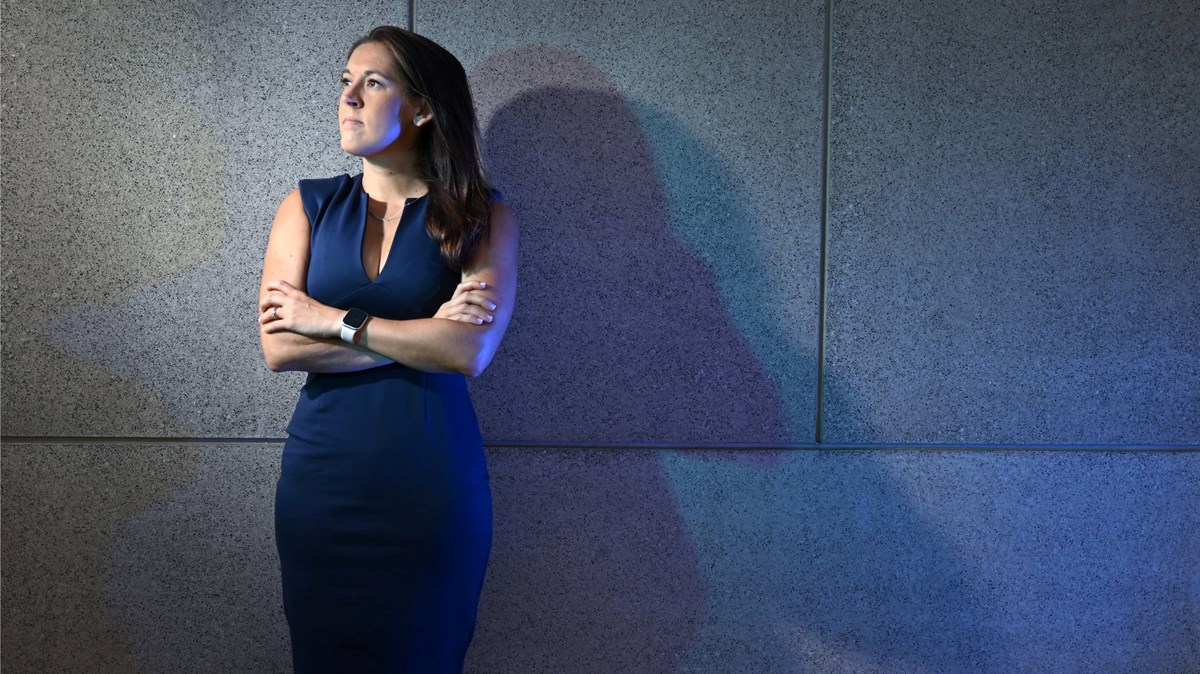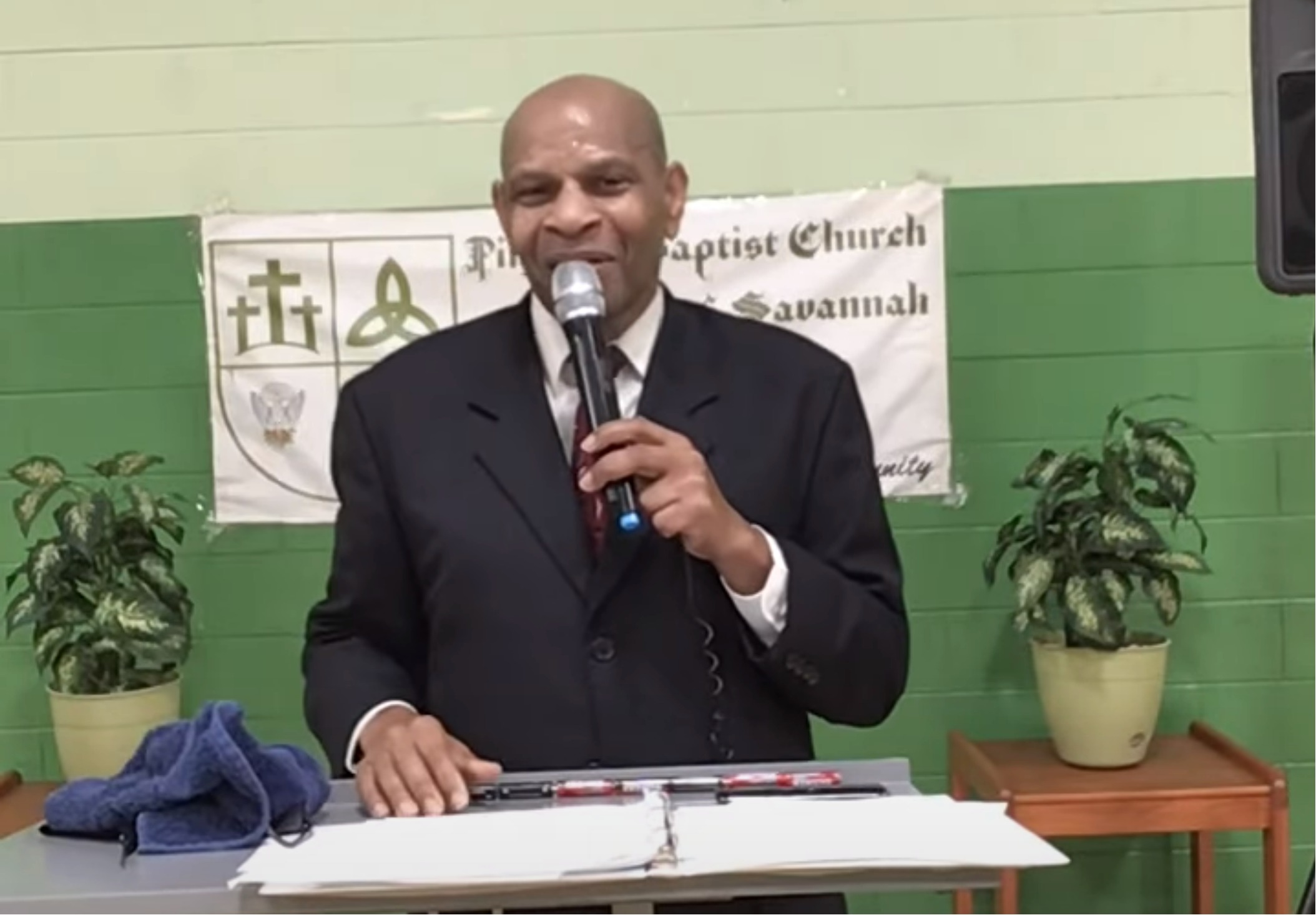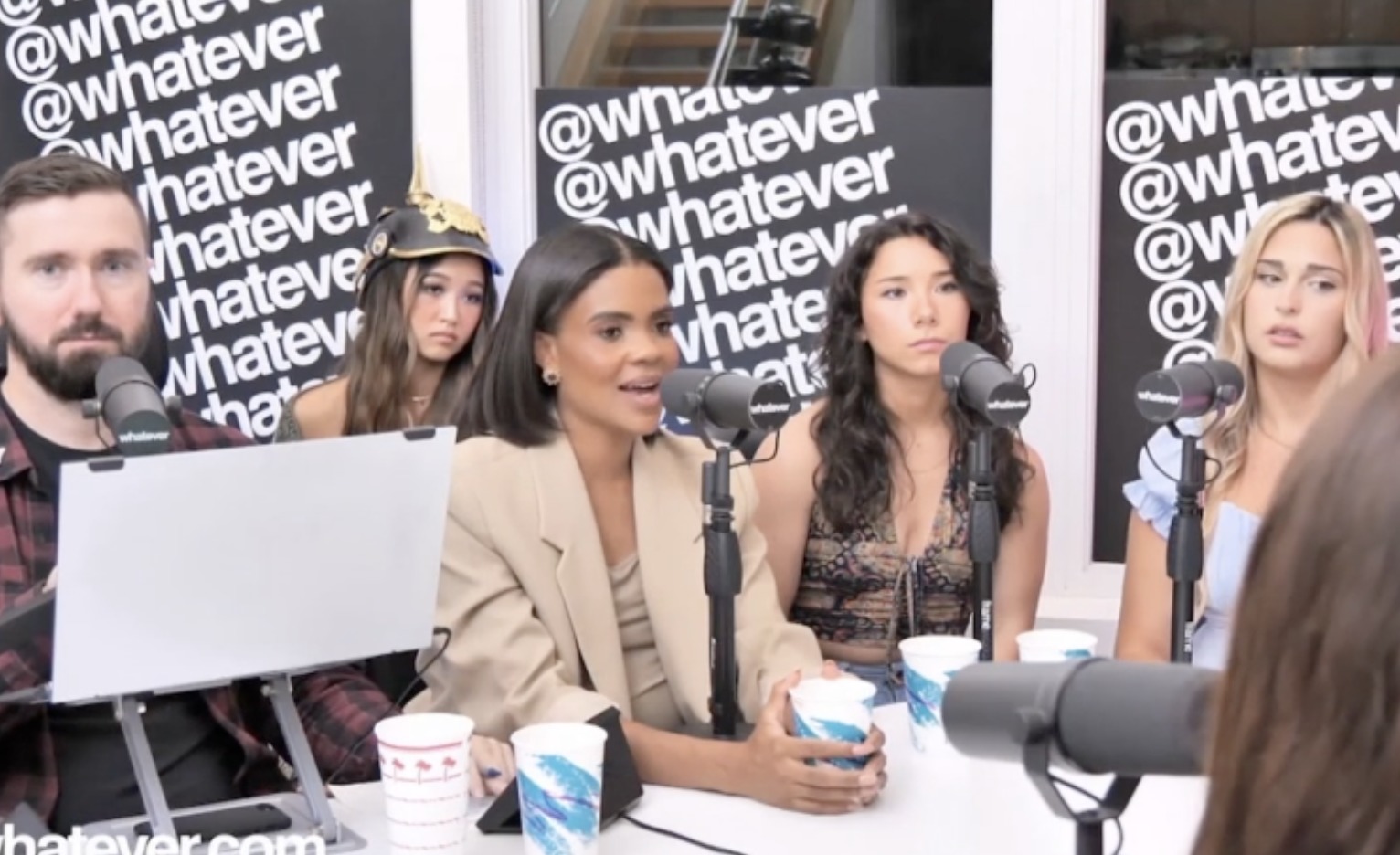Sarah Feinberg was a Marine Corps combat veteran, a Wharton Business School graduate, and a Christian mother of three when she left her job at one of the country’s biggest defense contractors—and filed a lawsuit under a whistleblower statute. Feinberg says she was prompted by the Holy Spirit and her moral convictions.
Eight years later, in September 2023, her role as a whistleblower netted a $69.8 million payout, a portion of one of the government’s largest procurement settlements to date at $377.45 million.
Back in 2015, Feinberg had discovered that her employer, Booz Allen Hamilton, was essentially billing the US government to cover the costs of its unprofitable work for other countries and for private sector companies, according to the Department of Justice (DOJ).
After trying to fix the billing problems internally for nine months, she came to believe that Booz Allen had no intention of ending their method of defrauding the US government. She resigned in 2016, got a lawyer, and filed a qui tam lawsuit under the False Claims Act.
The act levies monetary damages against those who attempt to swindle government programs. It also allows private citizens to sue on the government’s behalf and get a portion of the settlement or compensation. After several years of investigation and negotiations, Booz Allen and the US government settled.
Feinberg lives in the Washington, DC area and works as CFO at National Journal. She also volunteers as her church’s treasurer.
During an interview with CT on the first not-too-hot day of autumn, she apologizes for the noise of the helicopters flying above.
“The worst is when the Ospreys come through,” she says of the aircraft known for their noise and powerful rotor wash. “Those came out when I was in the Marine Corps. I was a logistics officer, so I’d have to attach stuff under the Ospreys. I would just get blown over.”
If the military taught her about getting up after getting blown over, business school taught her humility and how to ask questions and listen in rooms filled with smart people. Along with her faith, both helped her weather the twelve months in 2015-2016—what she calls “the worst year of my life”—and the publicity that came with the recent payout.
How do you fit in compared to other whistleblowers like Edward Snowden and Reality Winner?
They didn’t go about reporting it in the right way. They just exposed it to the public to let the public make [the judgment]. I think that there is a place for that. That’s why I ultimately went into journalism afterwards: because I think journalism is critical to holding leaders accountable.
But the way that Snowden—who was also a Booz Allen employee—did it was just leaking information, not actually trying to hold anyone accountable.
What I discovered through this process is that there are ways to do it correctly. I think DOJ is very ineffective at enforcement, but it is the right way to do it, versus just exposing it to the public.
You’ve raised objections to the settlement. Can you tell me about that?
The DOJ is very proud of the settlement, because it’s the one of the largest procurement fraud cases in history. I don’t think that matters. I think what matters is the amount in comparison to the actual fraud. The settlement amount further incentivizes them to do the wrong thing.
Their stock prices are at an all-time high. The individual who told me that “the government is too stupid to figure this out” is now the CFO of a federal contractor. So, there’s been really no repercussion.
A lot of people see something unethical, they try to do something about it, but it’s ineffective. There’s no settlement. It just gets quashed. Even for you, this has not been as effective as you’d hoped.
I recognize that I’m one of the luckiest people ever—definitely the luckiest whistleblower ever—with the fact that I actually got a portion of the settlement. That is not normal.
I’ve got three kids who are ages 8 to 12, and they’ve seen me going through it. Just having them see this, one of the things I want to be really clear about is that when you do the right thing, usually what happens is we see our reward in heaven and not here.
My boss here at National Journal is a Christian also, and when I told him what was going on and why I had to be out of work for the last couple of weeks, he was so excited. I think he said, “Just think about how amazing this reward is here on earth, and think about those who don’t get to see the fruit of doing the right thing here. How much greater is their reward in heaven.” That was such a great insight. People are getting to see that this is what should happen when you do the right thing. It usually doesn’t.
Can you tell me what trying to undo the fraud was like and how your faith factored in?
If you remember what was going on during this period of time in 2015 to 2016, what I was seeing was those of my faith—evangelicals—were turning against refugees and immigrants. My party, the Republicans, were aligning themselves behind a sexual predator who had authoritarian tendencies. And then my company, which I loved, was also engaging in fraud.
There was such moral clarity: This is wrong, and people have to stand up. So it made it, I think, easier for me to see, I am in a situation where I can do the right thing and I have a responsibility, therefore, to do it. I feel like it was very much a Holy Spirit thing.
We ended up taking in a refugee family in the fall of 2015. I didn’t know how my church was going to respond to that. I sent out this email to our church asking for help on getting this house set up for them, watching my twins—who were about five months old at the time. We got about 30 responses within 30 minutes from our church, which is not a big church. It was really neat to see how just stepping up and doing the right thing can bring others to also support that.
So, I had that mental model going into presenting this to the leaders at Booz Allen. The idea that you just have to inform people of what the right thing is, or you just have to set an example, and then they just follow.
It was shocking to see that not being the case. It changed my perspective. Before this, I thought people didn’t do the right thing because they didn’t know what the right thing to do was—that they just needed to be educated. What I learned through this is that no, there are people who will do whatever they think they can get away with.
I felt like I was very naive up to that point. So I have to be careful to not become cynical.
What role did your Christian community play during this time?
It was really helpful to have Christian community. But I couldn’t openly share what was going on.
Following the 2015 situation where I saw the church rejecting refugees, I didn’t have a crisis of faith, but I had a crisis of institution. I didn’t trust the church, but I was able to come to rely on my church—the Church of the Resurrection—because I trusted that they would be willing to do the right thing in a situation as volatile as the refugee crisis and also how they were responding to the political pressures at the time and not going along with what most evangelicals were doing.
Having that trust in my church allowed me to stay involved and have that constant spiritual formation as I was going through the most difficult time in my life.
So, losing your faith in institutions can have benefits?
Yeah. And then how much do you tear down from that? A lot of Christians are going through deconstruction, and I think it’s positive in a lot of ways. You do find that a lot of what was there is cultural and not biblical. It’s just, what will they rebuild with?
You’ve got this huge award now, and you’ve probably had some time to think about it. What are the principles that are guiding you as you deal with this?
I have kind of a sense of extreme responsibility. How do I steward this well? And how do I get back to the causes that drive accountability? The things I’ve really come to care about over time are justice and truth. My involvement in media is really addressing the truth aspect of that. I’m asking, What are areas that I can further justice in my community?
My husband [former congressional candidate Evan Feinberg] runs an anti-poverty nonprofit, the Stand Together Foundation, and the organizations are truly transforming lives and recognizing the dignity in humans. So I want to be supportive of causes like that. I want to be supportive of Christian causes, like my church. My sister [Kate Rode] runs an organization called Harvest Bridge that supports pastors on the ground in Nepal and Myanmar. I want to support what she’s doing there. I feel like those dollars go further than anywhere else. And then I also want to think through what causes are redemptive and not just moneymaking.
Would you say your lifestyle has changed?
No, and I don’t think it’s going to change. My kids are still in public school. We’re not moving. We’re still doing the same things.
I joined TheWashington Post in 2016, and I loved it. It just drove my passion for credible and trustworthy reporting. That’s been my passion since then. I think that will be what I continue to do. Right now, I’m at Atlantic Media for National Journal. I want to focus on furthering journalism at the local and the national level.
I want to be very clear: My husband is not leaving his job. He’s very passionate about what he does.
So, movie rights?
No one wants to hear an accounting story.
Susan Mettes is an associate editor at CT.




























![[Video] More – Aghogho » GospelHotspot](https://gospelhotspot.net/wp-content/uploads/2024/04/More-Aghogho.jpeg)
















